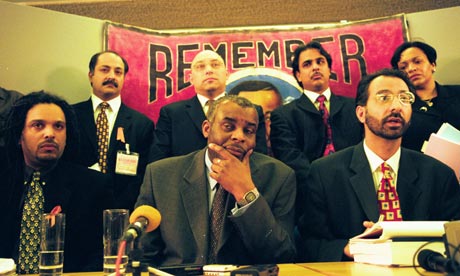Shuvendu Sen in The Times of India
It does not have the somber ambiance of The Doctor, where a brash MD himself succumbs to throat cancer and is hushed to humility. It does not carry the macabre interaction of a supposedly psychologically disturbed man and a tyrannical nurse as seen in One Flew Over the Cuckoo’s Nest. Neither does it inspire an awakening as Philadelphia did through a gay lawyer fighting AIDS.
Munnabhai MBBS is anything but the tempting medical plot hashing out tears, tension and hope. It walks clear of such obvious seductions. Truth be told, the movie is as loud as it can get, carries all the ingredients of Bollywood absurdity and harps on emotions, raw and running. But take a moment to peer beneath the rubble and you would smell a treasure. A rare treasure’s takes on a mission that has degenerated into a profession soaked with cynicism and slit throat parlance. And I am no film reviewer.
Let us take an earthly stand. When was the last time, we physicians have put our right hands up and taken the oath that we would take care of patients over and above vested interests? When was the last time, save glorious exceptions, we have crossed the borders of our financial gains and taken a bow for the penniless sufferer? When was the last time we thanked the hospital sweeper for his services to patient care? For that matter, when was the last time a medical book was written to highlight the absolute necessity to reach out to a stage four cancer patient other than through mindless chemotherapy and pain medications? Fact remains that medicine, like none other profession has become the yardstick of a cultivated upper lip vocation, to pursue and prevail. In our pursuit for perfection we have lost the imperfect patient.
And the fact that Munna bhai, despite all his convivial and genteel mindset, was a full blown quack, a rank outsider, drenched in liquor, roadside patois and all that was coarse and callous, made the white coat adorned messiahs look even more like bloodless bodies. Harsh words, but if anything had been flushed down the drain in the practice of medicine, it had to be empathy and emotions. Formless jottings have replaced tender words. Machines have superseded probing minds. An impatient doctor sits across the floor, rummaging the symptoms, inaccessible to the sufferer.
But of course, Munnabhai M.B.B.S has its own share of absolute lunacy. The frequent fist fights, the semi clad on-campus dance and the lugubrious antics are a far cry from the austere charm and book like precision of its western counterparts. But there’s a reason why British Medical Journal took a note of this movie. One suspects the makers of this movie played the human mind well.
Sometimes the finest sustains longer when drowned under the gross. The fine trickle beneath the plunging waves has always made its presence felt. Cure has always been the visible highpoint of medicine. It is the unseen, unspoken care that needs visibility. Munna bhai was all about that care.


